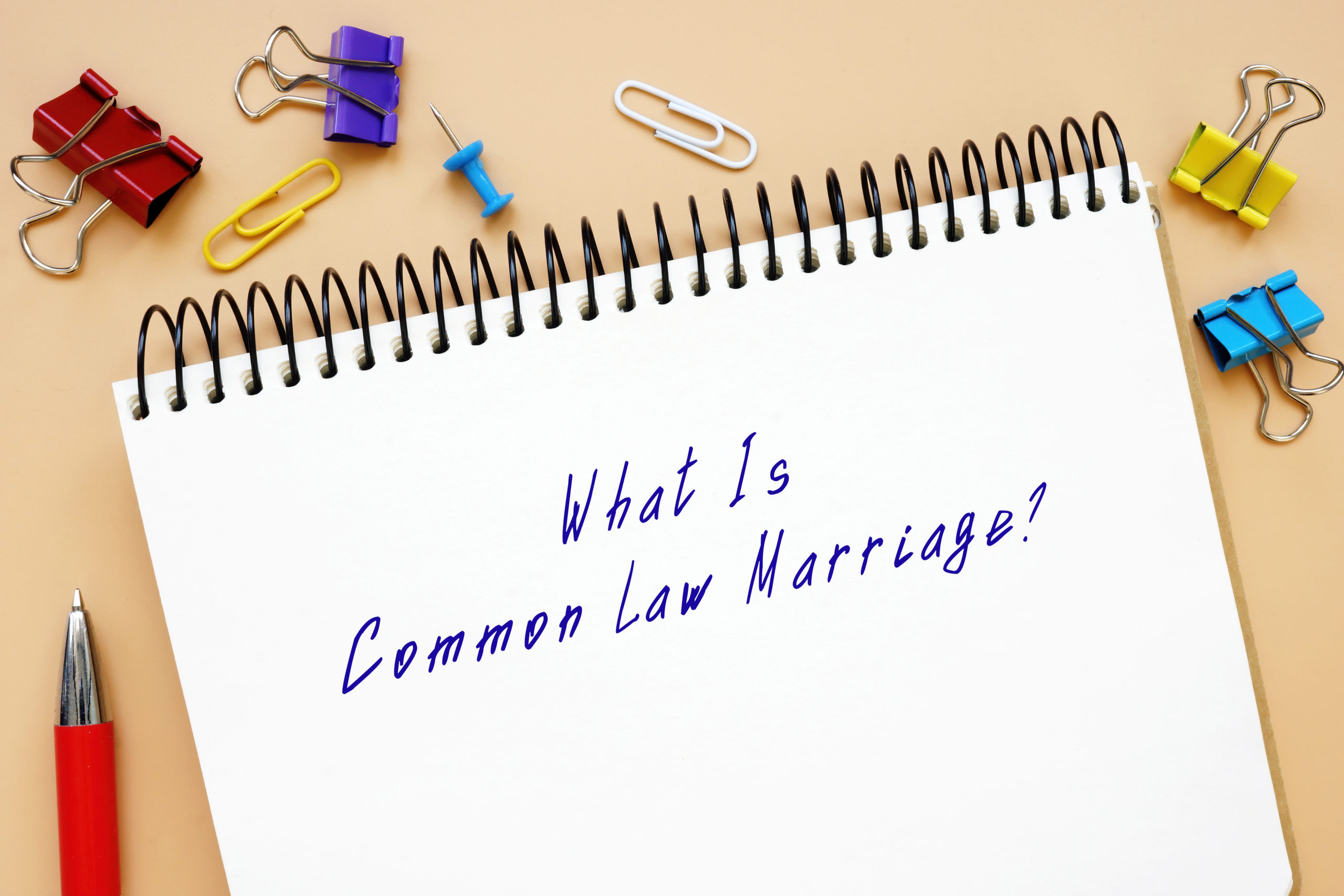Common law also called an informal marriage in the United States there are 11 states that recognize the informal or common law marriage.
A common law or informal marriage is the legal equivalent to a formal marriage, but it comes into existence without any of the formalities generally required to create a marriage which would be the issuance of a license and then the attendance at a ceremony.
Informal marriage en Texas
An informal marriage can be created when the following elements have been met in Texas:
- There is an agreement to be married.
- Living together in Texas as a married couple and
- representing two others holding out that you are married couple in Texas.
All three elements must exist for at least one second together once they do from that moment on the marriage exists.
Now there’s no such thing as a common law divorce in Texas the Burden of Proof of the marriage is on the proponent who alleges that there is an informal marriage which must be proved by a preponderance of the evidence.
You can be entitled to a jury trial on the existence of a marriage as to the elements the first agreement the first element would be an agreement to be married the evidence must show that the parties had a present immediate and permanent marital relationship and agreed presently to be spouses or husband and wife.
An agreement to be married in the future is insufficient and generally contrary to the allegation of a present marriage.
The agreement can be proven by both direct and circumstantial evidence, direct evidence is generally the direct testimony of one of the parties or a third party stating one of the parties stated there was such an agreement.
Circumstantial evidence can take any form so long as it supports an inference the parties subjectively believed they were married. Testimony of one of the parties alone of an agreement to be married can satisfy this element so long as it is direct, unequivocal and the other party does not contradict it.
Living together in Texas “Cohabitation”
This would be the second element. Evidence must show that the parties live together as spouses in Texas.
The courts have held cohabitation in mere sexual relations under one roof is not enough, they must “maintain a household” and do those things ordinarily done by husband and wife.
There’s no required time period but it must be for more than one night.
This must occur in Texas as the courts have held that if the parties cohabitate in another country or state then no informal marriage will arise.
The Holding Out there must be evidence that the parties represented to the community at large that they were married; there can be no secret marriage the marriage is a status, not just a contract. In other words, being married is a status in the community, and there to be treated by the community as husband and wife in what is associated with a husband and wife, or spouses is the treatment by the community at large the couple is married.
Now the side issues that come up with the marriage informal marriage are going to be first Capacity you have to be of such an age which is 18 in Texas, and you cannot marry someone who you’re related to.
So those are your first two elements a 16-year-old cannot be a party to a common law marriage and then of course you cannot marry your sibling or your first cousin, your aunt, uncle, mother, father. And as you look at the capacity of the parties prior to 2015 you cannot have same-sex marriage in Texas.
After the Supreme Court ruled equality in marriages then you have now same sex common law marriage.
And the issue becomes with the same sex common-law marriage is the date that you would have for the inception of the marriage for purposes of spousal support and marital property.
The date of inception of the marriage is something that you would need to determine to both look at the capacity for one party to make a claim for social security, retirement benefits, that perhaps one of the spouses has so this gets a little tricky when you deal with same-sex couples.
Effect, Duration and Presumptions
The Effect, Duration and Presumptions if you do not commence a suit after the parties have separated and ceased to live together within two years there’s a presumption that there is no informal or common-law marriage.
Now the couple who are a party to a common-law marriage can file a declaration in the clerk’s office in the county in which they reside of an informal marriage in the date in which it incepted; this creates a rebuttable presumption of a marriage.
Some of the other issues you would have that would come up during your common law or informal marriage litigation would be temporary orders as a party files for divorce and they allege a common law marriage and if your opposing spouse says we were never married, then as far as interim support interim attorney’s fees, status quo you have to show initially through a temporary orders hearing which is going to be relatively quick.
Within the first 30 to 60 days that you’re able to prevail on your claims.
So, what I would look towards is are the parties sharing health insurance together, they file taxes together, and also that declaration was it filed in the county clerk’s office.
If you have a situation where the parties have never filed taxes together, they don’t share insurance; and they really have no property together; they have a child.
Then many times what you do is you’ll get you’ll be able to get orders for child support and orders for the child, but the court many times will defer a ruling on the common law marriage until a final trial on that which they’ll allow discovery and that’ll be on out in the future it won’t be a topic for temporary orders.
So, the considerations you would have in looking at an informal marriage would generally be the capacity is what you would look at first and then you would also look at were there any declarations filed in the county clerk for which the parties resided in which there was a declaration of an informal marriage.
And then those are the two relatively easy ones to either confirm that there perhaps is an informal marriage or to knock out the allegations of an informal marriage and then from there agreements and then cohabitation between the parties whether or not they presided together.
⇒ See a video related to this post
⇒ For more Family Law content visit my YouTube channel















